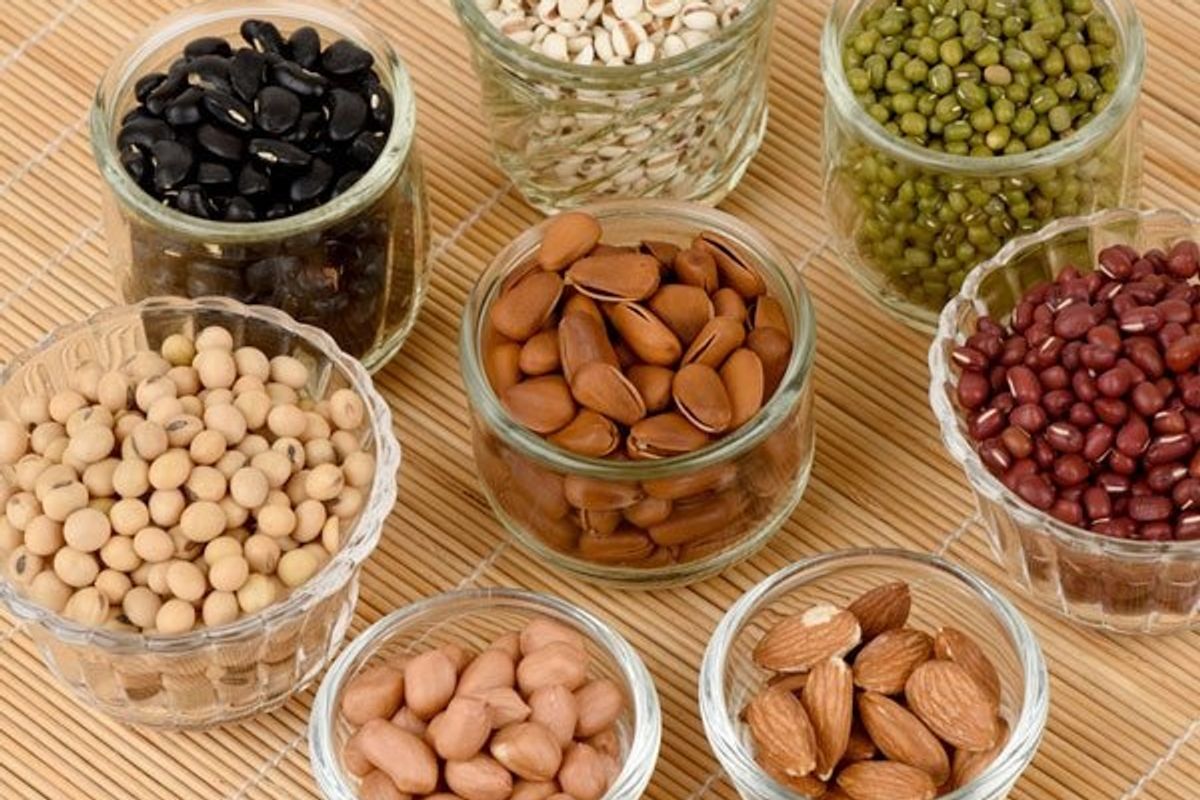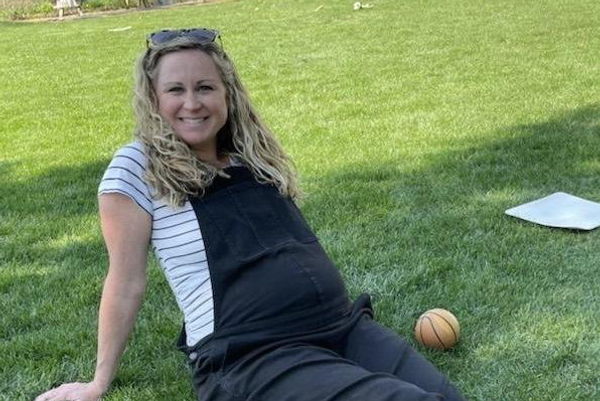When most of us think of fertility treatment, we imagine sophisticated diagnostic testing, powerful medications, and high-tech procedures. Choosing certain foods and drinks as a way to influence your ability to become pregnant sounds more like folktale wisdom than medical advice.
COULD YOU BE PREGNANT? 4 Weeks Pregnant Symptoms
No wonder, then, that in a society blessed with many medical advances, we sometimes overlook the natural tools we have to help us with our fertility and pregnancy experiences. While your diet can influence your overall health, if you make dietary changes and still having difficulty conceiving, consider these top causes of infertility in women.
Yet, science now is coming full circle to take another look at the role nutrition may play in improving fertility and supporting healthy pregnancies. While many women don't start getting serious about eating healthfully until after they've become pregnant, there's increasing evidence that diet matters long before conception.
FIND YOUR MOST FERTILE DAYS: How to Use a Fertility Calculator
Watch your weight
Unhealthy food intake—whether too much or too little—has been recognized as a contributing factor to infertility for many years.
Too little or too much weight can make your reproductive cycle irregular. That causes you to ovulate only now and then, or not at all.
"Your ovaries and your fat cells regulate estrogen, which affects ovulation. If you're too thin, you may not be producing enough estrogen, and if you're overweight or obese, you may be producing too much," says Maria Biasucci-Vianna, MS, RD, CDN, a New Rochelle, NY, dietitian who has counseled women with infertility problems in her private practice.
The first order of business, Biasucci-Vianna says, is to achieve and maintain a healthy weight to keep your reproductive cycle in balance. She advises the women she sees to check their BMI (body mass index) score. A BMI ranking of 19-24 indicates a healthy weight (athletes may have higher scores due to muscle mass). Anything below or above that range should be discussed with your health care provider.
Foods to improve ovulation
If weight isn't a problem, but you're experiencing infertility, will changing your dietary habits help you eat your way to motherhood?
Recently, researchers from the Harvard School of Public Health published findings from a study of more than 18,000 women who were followed over eight years to see if their diets influenced their ability to become pregnant.
The study found that women who ate foods containing higher amounts of trans fats, animal proteins and carbohydrates, among other dietary factors, were more likely to have an ovulatory disorder. Ovulation problems cause infertility in about 20 percent of women seeking help in becoming pregnant. The researchers concluded that a majority of such cases "may be preventable" by adjusting diet and lifestyle.
Those findings apply only to women with ovulation problems and not to all infertile women. Yet, key study findings could give many women new avenues to explore, including:
- Switch protein sources: Replace some of the beef, pork or chicken you eat (animal protein) with vegetable protein sources, such as cooked dried beans and nuts. When five percent of total calories eaten come from vegetable protein instead of animal, the risk of ovulatory infertility drops by more than 50 percent.
- Add some high-fat dairy: Call it the Chunky Monkey Effect. The more low-fat dairy products you eat, the greater your risk of ovulatory infertility. Yes, you read that right—although the study's authors caution against using this to justify late-night freezer raids for a pint of premium ice cream. Instead, try replacing one low-fat dairy serving per day with one high-fat serving, such as a glass of whole milk.
- Don't forget your vitamins: Women in the study who regularly took iron supplements and multivitamins containing folic acid had less ovulation-related infertility.
Building a healthy baby nest
Let's face it: Everyone knows women whose food choices are awful, but who have no problem getting pregnant. Likewise, there are plenty of women eating healthy meals consistently, yet struggling with infertility.
"It's not clear how what we eat can determine how easily we will get pregnant," says Melinda Johnson, MS, RD, spokesperson for the American Dietetic Association and a dietitian with a private practice in Chandler, AZ. Despite that, Johnson adds, "It makes sense to eat a healthy diet while you are trying to get pregnant. It may increase your odds of getting pregnant, but, beyond that, it nourishes your body so that it is at its healthiest the moment that you do get pregnant."
If you're trying to become a mom, Johnson advises focusing on the following foods to help your body function at its peak right now. That will improve your fertility environment as well as create the best nutritional foundation for fetal growth and development:
| Eat more | To gain |
| Whole grains | B vitamins, vitamin E, fiber |
| Fruits, vegetables | Vitamin C, antioxidants |
| Lean meats, beans | Protein, zinc, iron |
| Low-fat dairy | Protein, calcium |
| DHA/Omega-3 (salmon, canned light [not albacore] tuna, some egg brands) | Benefits baby's brain and nervous system development; reduces risk of premature birth |
| Multivitamin with 400 mcg of folic acid | Reduces risk of spinal cord and brain defects, especially in weeks before conception and first trimester of pregnancy |
More tips
- Consume choline: You may never have heard of it, but choline is a nutrient with the potential to reduce harmful gene effects that may result in birth defects. It also is important for brain function, among other benefits. Most women don't get enough choline; many prenatal vitamins don't even contain it. Egg yolks are rich in choline; only beef liver contains more. Cauliflower, the highest choline-containing veggie, has 25 percent of the choline found in one egg yolk.
- Watch your herbal teas and supplements: "You really have to be careful of having too many botanicals in your diet," cautions Biasucci-Vianna. Some herbs—including licorice, sassafras, ginseng, St. John's wort and ephedra—should be avoided while in fertility treatment or pregnant.
- It takes two (usually) to tango: Fertility problems may be due to the male partner's weight or diet. Johnson says that vitamins C and E, zinc and folic acid help improve sperm health. Sperm motility can also be damaged by smoking, drinking alcohol (including beer) and recreational drug use.
- Fish carefully: Don't eat sushi or any raw fish. Avoid fish that have high mercury content due to their environment—including swordfish, tilefish, king mackerel and shark.
- Stay fluid: When you don't drink enough water, your cervical fluid (the stuff that helps the sperm find the target egg) becomes sluggish, Johnson points out. The same goes for a man's ejaculate fluid. Drink enough water so that your urine is a light yellow color.
- Cut caffeine: High caffeine intake interferes with conception. You may want to consider eliminating it from your diet altogether by avoiding caffeinated coffee, tea and soft drinks (decaf is fine). Once you're pregnant, caffeine also crosses the placenta and can affect the fetus and even cause miscarriage. Stick to no more than two five-ounce cups of regular coffee a day, advises Biasucci-Vianna.







